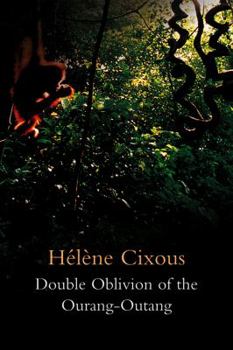Double Oblivion of the Ourang-Outang
Select Format
Select Condition 
Book Overview
In 2009, the writer-narrator finds a Box. Within it lie thepages of her very first manuscript, pages she thought she had longsince thrown away. Le Pr nom de Dieu was the text thatmarked the start of her prodigious career, and yet for the narratorit is also the Nameless Book, the-Book-that-could-never-be-read, the book written by someone other than her. Now, once again, itheralds a beginning, as its discovery is the start of a journeyinto the past.
The title, with its reference to the murderous Ourang-Outang ofEdgar Allan Poe's The Murders in the Rue Morgue, setsthe scene: this is a detective story haunted by literary ghosts. Atthe very heart of literature lies the fascination with the enigma, the search for something that has been lost. Cixous illustratesthis as she leads her reader on a hunt for the ultimate hiddentreasure, in the company of an array of venerable predecessors fromSaint-Simon, Proust and Stendhal to Shackleton, Poe and JacquesDerrida.
Double Oblivion of the Ourang-Outang is a text aboutliterature. It speaks of the books you read and the books youwrite, those you remember and those you forget, those you fear andthose you revere. It is also a powerful, evocative tale ofbeginnings and endings, of remembering and forgetting, of thingsand their doubles.
In a densely woven narrative, Cixous's latest text focuseson the extraordinary voyage that is literary creation, and in doingso also explores the themes of memory, loss and subjectivity.





